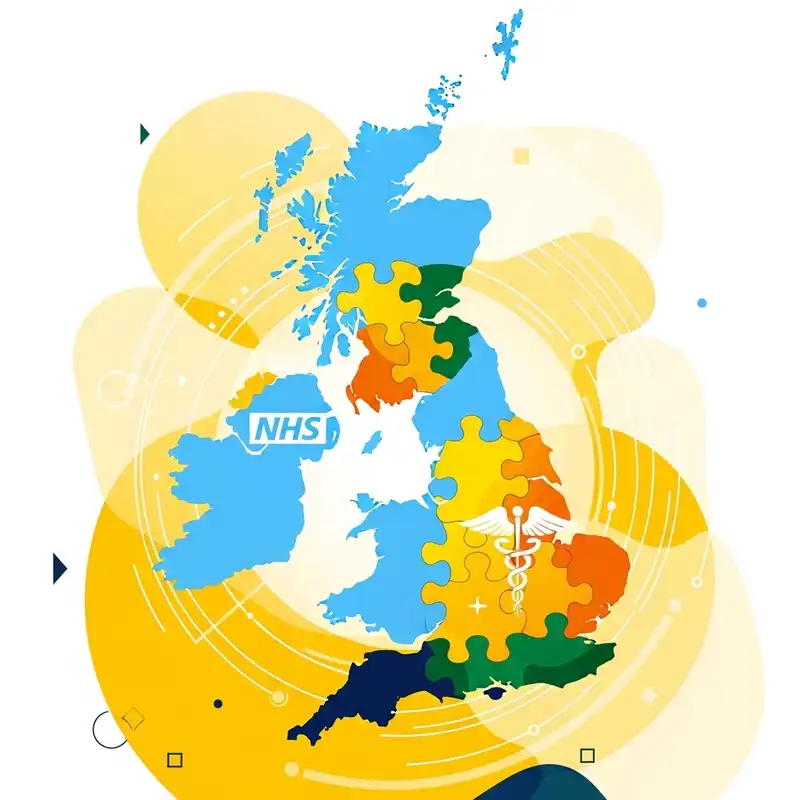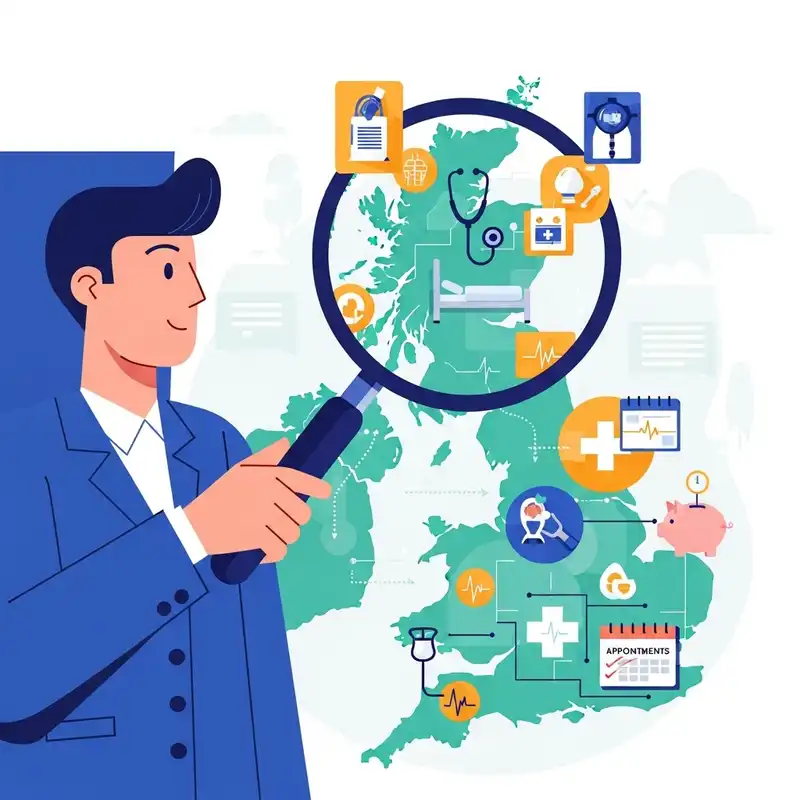TL;DR
As an FCA-authorised expert broker that has helped arrange over 900,000 policies, WeCovr knows the UK motor insurance market inside out. We understand that while it's a legal necessity, the complexities of pricing can leave many drivers feeling short-changed. Millions of pounds are wasted each year on inflated premiums.
Key takeaways
- Never accept the first renewal quote. Treat it as a starting point, not a final offer.
- Diarise your renewal date. Set a reminder on your phone or calendar for four weeks before your policy expires. This is the perfect time to start shopping around.
- Compare the market thoroughly. Use an independent broker like WeCovr to compare dozens of policies in minutes. We scan a wide panel of UK insurers to find the best car insurance provider for your needs, ensuring you see the true market rate, not just an inflated renewal price.
- A "Journalist" might be perceived as someone rushing to meet deadlines and driving in busy urban areas. An "Editor" might be seen as more office-based and lower risk.
- A "Builder" suggests manual labour and carrying tools (implying a higher risk of theft), whereas a "Construction Manager" or "Quantity Surveyor" implies a more supervisory, office-based role.
As an FCA-authorised expert broker that has helped arrange over 900,000 policies, WeCovr knows the UK motor insurance market inside out. We understand that while it's a legal necessity, the complexities of pricing can leave many drivers feeling short-changed. Millions of pounds are wasted each year on inflated premiums.
WeCovr reveals insider tricks that can increase your car insurance premiums unnecessarily
The world of motor insurance is built on complex calculations of risk. Insurers use hundreds of data points to decide how much you should pay. But within this system, there are subtle traps and overlooked details that can cause your premium to skyrocket without good reason.
Below, we uncover five of the most costly secrets and show you how to navigate them like a pro.
Secret 1: The Auto-Renewal Trap: Why Loyalty Doesn't Always Pay
For years, the biggest secret in the insurance industry was the "loyalty penalty." Insurers would entice new customers with low introductory prices, only to gradually increase the premium year after year at renewal, banking on the fact that most people wouldn't bother to shop around.
The Financial Conduct Authority (FCA) stepped in with new rules in January 2022 to tackle this practice, known as "price walking." These rules state that an insurer cannot offer a renewal price that is higher than the price they would offer an equivalent new customer for the same policy.
So, the problem is solved, right? Not quite.
The trick lies in the details. The rules apply to the exact same policy. Insurers can still adjust their underlying risk models from one year to the next, which can change the base price for everyone. Furthermore, special discounts offered to brand-new customers might not be available to renewing ones. The result is that your renewal price can still be significantly higher than the best deal available elsewhere.
According to the Association of British Insurers (ABI), the average price paid for private comprehensive motor insurance in the first quarter of 2024 was £635. However, consumer champions consistently find that drivers who switch providers can save hundreds of pounds.
How to Avoid the Auto-Renewal Trap
- Never accept the first renewal quote. Treat it as a starting point, not a final offer.
- Diarise your renewal date. Set a reminder on your phone or calendar for four weeks before your policy expires. This is the perfect time to start shopping around.
- Compare the market thoroughly. Use an independent broker like WeCovr to compare dozens of policies in minutes. We scan a wide panel of UK insurers to find the best car insurance provider for your needs, ensuring you see the true market rate, not just an inflated renewal price.
| Action Taken | Typical Outcome for a Driver with a £600 Renewal Quote | Potential Saving |
|---|---|---|
| Accepts Auto-Renewal | Premium remains at £600, or slightly higher. | £0 |
| Shops Around 3 Weeks Before | Finds an identical policy from a competitor for £450. | £150 |
| Uses Renewal Quote to Haggle | Contacts their current insurer and negotiates the price down to £475. | £125 |
The lesson: Loyalty is rarely rewarded. Active shopping is your best defence against overpaying.
Secret 2: The Job Title Trap: How Your Profession Defines Your Risk
Did you know that describing your job as a "Chef" instead of "Kitchen Staff" could change your premium? Or that a "Music Teacher" might pay less than a "Musician"?
Insurers use your occupation as a key indicator of risk. They have decades of data that correlate certain professions with specific driving behaviours, claim frequencies, and types of vehicle use.
The secret isn't to be dishonest—that would be insurance fraud and could invalidate your policy entirely. The secret is to be accurate and specific. Insurers' online forms have drop-down lists with hundreds of job titles. The one you choose matters immensely.
Consider these real-world examples:
- A "Journalist" might be perceived as someone rushing to meet deadlines and driving in busy urban areas. An "Editor" might be seen as more office-based and lower risk.
- A "Builder" suggests manual labour and carrying tools (implying a higher risk of theft), whereas a "Construction Manager" or "Quantity Surveyor" implies a more supervisory, office-based role.
The Financial Impact of a Job Title
Here’s a hypothetical example of how a small change in a job title could affect an annual premium for the same 35-year-old driver in a Ford Focus.
| Job Title Selected | Example Annual Premium | Why the Difference? |
|---|---|---|
| Chef | £550 | Perceived high-stress role, potential for late-night driving. |
| Kitchen Porter | £520 | Seen as a slightly lower-risk role within the same environment. |
| Caterer | £490 | Suggests more planned travel, potentially outside peak hours. |
How to Navigate the Job Title Field
- Be Honest: Never lie about your job. If you have an accident and the insurer discovers you've misrepresented your occupation, your claim will likely be rejected.
- Be Precise: When you get a quote, look carefully through the list of available job titles. Is there a more accurate description of your role? For example, if you're a "manager" in an office, titles like "Office Manager" or "Supply Chain Manager" might be more accurate and cheaper than just "Manager."
- If You Have Multiple Jobs: You must declare all of them. The insurer will typically base the premium on the highest-risk occupation.
- If You're a Homemaker or Retired: Be sure to select this accurately, as it often leads to lower premiums due to perceived lower mileage and off-peak driving.
Secret 3: The 'Optional' Extras That Inflate Your Bill
When you buy a motor policy, the final price often includes several "optional" add-ons. While some can be valuable, they are a major source of profit for insurers and often provide cover you don't need or could get cheaper elsewhere.
The secret is to scrutinise these extras and understand what they really offer.
Common Optional Extras and What to Watch For
-
Motor Legal Protection (or Legal Expenses Cover):
- What it is: Covers the cost of legal fees to help you recover uninsured losses after an accident that wasn't your fault. This can include your policy excess, loss of earnings, or compensation for injury.
- The Catch (illustrative): Many packaged bank accounts already include a form of legal expenses cover. Check your other financial products before paying £20-£30 extra for it on your motor policy.
-
Guaranteed Hire Car / Enhanced Courtesy Car:
- What it is: A standard comprehensive policy often includes a "courtesy car," but this comes with major limitations. It's usually a small hatchback and is only provided if your car is being repaired at an insurer-approved garage after an accident. It is not provided if your car is stolen or written off.
- The Upgrade: A "Guaranteed Hire Car" add-on provides a replacement vehicle even if yours is written off or stolen. An "enhanced" version might promise a car of a similar size to your own.
- The Cost (illustrative): This can add £25-£50 to your premium. Decide if you truly need this. Do you have access to another car? Could you use public transport for a short period?
-
Breakdown Cover:
- What it is: Assistance if your vehicle breaks down at the roadside or at home.
- The Catch: This is almost always more expensive when bundled with your insurance than when bought as a standalone policy directly from a specialist like the AA, RAC, or Green Flag. Again, check your bank account, as many premium accounts include breakdown cover as a perk.
-
Personal Accident Cover:
- What it is: Provides a lump sum payout in the event of serious injury or death in a motor accident.
- The Catch: The cover levels are often relatively low compared to a dedicated life insurance or personal injury policy. If you have dependents, a standalone life insurance policy offers far greater protection.
WeCovr can help you find discounts on other types of cover, like life insurance, when you purchase a motor policy, ensuring all your protection needs are met in the most cost-effective way.
Secret 4: The Timing Trick: When You Buy Your Insurance Matters
This is one of the simplest yet most effective secrets to exploit. The price of your motor insurance can vary wildly depending on how far in advance of the start date you purchase it.
The Rule: Buying at the last minute is a massive red flag for insurers.
Data analysis from multiple consumer sources has consistently shown that drivers who buy their policy on the day it's due to start pay hundreds of pounds more than those who buy it a few weeks earlier.
Why? The insurer's algorithm sees last-minute buyers as disorganised, more likely to have had their previous insurance cancelled, or simply desperate. This profile is statistically correlated with a higher likelihood of making a claim.
The Sweet Spot: The optimal time to buy your car insurance is around 21 to 26 days before your current policy expires. This signals to the insurer that you are organised, responsible, and a lower-risk customer.
The Cost of Procrastination
| When You Buy Your Policy | Average Premium Impact (vs. a £500 base price) |
|---|---|
| 21-26 Days Before Start Date | £500 (Optimal Price) |
| 14 Days Before Start Date | £540 (+8%) |
| 7 Days Before Start Date | £610 (+22%) |
| On the Day of Renewal | £750+ (+50% or more) |
Note: Figures are illustrative but based on industry-wide pricing patterns.
How to use this secret: Mark your calendar for one month before your renewal. This gives you a full week to research, compare quotes from different providers, and make a purchase within that golden 21-26 day window.
Secret 5: The Black Box Myth: It's Not Just For Young Drivers
Telematics insurance—also known as "black box" insurance—has a reputation for being just for new, young, or high-risk drivers. This is a myth that costs safe, experienced drivers millions.
How it works: A small device (the "black box") or a smartphone app monitors your driving habits. It tracks:
- Speed: Do you stick to the limits?
- Acceleration: Are you smooth or aggressive?
- Braking: Do you brake harshly and late?
- Cornering: Are you taking bends safely?
- Mileage: How far do you drive?
- Time of Day: Are you driving at peak times or during higher-risk late-night hours?
The secret is that any driver with good habits can benefit. If you are a low-mileage driver, rarely drive late at night, and have a smooth, defensive driving style, a telematics policy could offer you a significantly lower premium than a traditional one, regardless of your age.
Who Should Consider a Telematics Policy?
- Low-Mileage Drivers: If you only use your car for the school run or weekly shop, telematics proves your low usage and can lead to big savings.
- Safe, Experienced Drivers: You might have decades of no-claims bonus, but a black box can provide further proof of your excellent habits, unlocking deeper discounts.
- EV Owners: Some telematics policies are designed for electric vehicles, helping you drive more efficiently to preserve battery range and rewarding you for it.
- Fleet Managers: For businesses, telematics is a powerful tool. It not only reduces fleet insurance premiums but also helps monitor driver behaviour, improve fuel efficiency, and track vehicle location for logistics and security.
When getting a quote, don't automatically dismiss the telematics option. It's worth comparing it against traditional policies. A broker like WeCovr can easily show you prices for both, helping you make an informed choice.
Understanding Your Motor Insurance: The Legal Essentials
In the UK, it is a legal requirement under the Road Traffic Act 1988 to have at least third-party motor insurance for any vehicle used on roads or in public places. Driving without insurance can lead to unlimited fines, penalty points, and even disqualification.
There are three main levels of cover:
- Third-Party Only (TPO): This is the legal minimum. It covers injury to other people (third parties) and damage to their property or vehicle. It does not cover any damage to your own car.
- Third-Party, Fire and Theft (TPFT): This includes everything in TPO, plus it covers your vehicle if it is stolen or damaged by fire.
- Comprehensive: This is the highest level of cover. It includes everything in TPFT but also covers damage to your own vehicle, even if the accident was your fault. It often includes other benefits like windscreen cover and personal belongings cover as standard.
An Important Note: Many drivers assume TPO is the cheapest option. This is often not the case. Insurers have found that drivers who seek out the bare minimum level of cover are statistically a higher risk. As a result, a comprehensive policy can frequently be cheaper than a third-party one. Always compare quotes for all three levels.
Business and Fleet Insurance Obligations
If you use your vehicle for work—beyond commuting to a single, permanent place of business—you need business car insurance. This is typically split into classes:
- Class 1: Covers use for your business, including travel to multiple sites.
- Class 2: Includes Class 1 and allows a named driver (e.g., a colleague) to be covered for business use.
- Class 3: Covers commercial travelling, such as door-to-door sales.
For companies operating multiple vehicles, fleet insurance is essential. It's a single policy that covers all of the company's cars, vans, or motorcycles, simplifying administration and often reducing the overall cost per vehicle. It is a legal requirement for businesses to ensure all vehicles used for work purposes are appropriately insured.
Key Insurance Terms Explained
Understanding the jargon can save you money and prevent nasty surprises when you need to claim.
-
No-Claims Bonus (NCB) / No-Claims Discount (NCD): For every year you drive without making a claim, you earn a discount on your premium for the following year. This can build up to a discount of 70% or more after five to nine years. Making a "fault" claim (where your insurer cannot recover costs from a third party) will usually reduce your NCB by two years. You can often pay a small extra fee to "protect" your NCB, allowing you to make one or two claims within a certain period without affecting your discount.
-
Excess: This is the amount of money you must pay towards any claim. It is made up of two parts:
- Compulsory Excess: A fixed amount set by the insurer.
- Voluntary Excess: An amount you agree to pay on top of the compulsory excess. Example: If your compulsory excess is £250 and you set a voluntary excess of £200, your total excess is £450. In the event of a £1,000 claim, you would pay the first £450 and the insurer would pay the remaining £550. Top Tip: Increasing your voluntary excess will lower your premium, but make sure you set it at a level you can comfortably afford to pay if you need to make a claim.
-
The Claims Process: If you're in an accident, you should inform your insurer as soon as it is safe to do so, even if you don't intend to make a claim. This is a condition of most policies. A claim will impact your future premiums and your NCB (unless it is a "non-fault" claim where your insurer recovers 100% of the costs).
WeCovr's Expert Tips for Lowering Your Premium
Beyond the five big secrets, here are more proven ways to cut the cost of your motor insurance UK policy:
- Pay Annually: Paying for your policy in monthly instalments is a form of credit. Insurers charge interest, which can add 10-20% to the total cost. If you can, pay for the year upfront.
- Be Accurate With Mileage: Don't overestimate your annual mileage. Use your MOT certificates or a mileage tracking app to get an accurate figure. Lower mileage equals lower risk and a lower premium.
- Improve Vehicle Security: Factory-fitted alarms and immobilisers are standard now, but adding an approved tracker can significantly reduce premiums, especially for high-value cars.
- Consider Advanced Driving Courses: Qualifications from bodies like IAM RoadSmart or RoSPA can earn you a discount from some insurers as it proves you have enhanced driving skills.
- Choose a Car in a Lower Insurance Group: All cars are placed into one of 50 insurance groups. Before you buy a car, check its group number—the lower the number, the cheaper it will be to insure.
- Add a Lower-Risk Named Driver: Adding an experienced driver with a clean record (like a parent or partner) to your policy as a named driver can sometimes reduce the premium, as it implies the car will be used less by the main, higher-risk driver. Be careful not to commit "fronting" (see FAQs).
Do I need to declare modifications to my car?
Will a speed awareness course affect my insurance?
What is 'fronting' and why is it illegal?
Can I use my personal car for business purposes?
Don't let these industry secrets cost you another penny. Take control of your motor insurance today. At WeCovr, our FCA-authorised experts are ready to help you compare quotes from a wide panel of UK insurers for your car, van, motorcycle, or entire fleet. It's fast, free, and could save you hundreds.
Get your no-obligation motor insurance quote now and see how much you could save.
Sources
- Department for Transport (DfT): Road safety and transport statistics.
- DVLA / DVSA: UK vehicle and driving regulatory guidance.
- Association of British Insurers (ABI): Motor insurance market and claims publications.
- Financial Conduct Authority (FCA): Insurance conduct and consumer information guidance.






